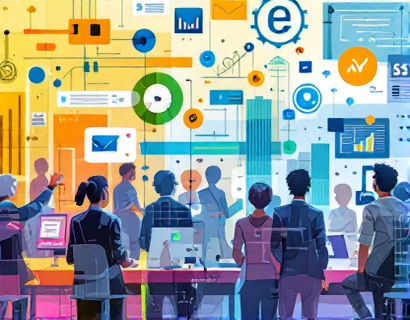Enhancing Cognitive Flexibility and Expanding Capabilities: A Guide to Transformative Learning
In an era where continuous learning and adaptability are paramount, the pursuit of cognitive growth and lifelong development has become more crucial than ever. This article delves into the significance of enhancing brain power and capabilities through structured and engaging learning platforms. For lifelong learners and personal development enthusiasts, the journey to mental agility and expanded capabilities is both rewarding and essential. This transformative learning journey is not just about acquiring new knowledge but also about fostering a mindset that embraces change and challenges.
The Importance of Cognitive Flexibility
Cognitive flexibility refers to the brain's ability to switch between thinking about different concepts, and to think about multiple concepts simultaneously. This skill is vital in today's fast-paced world, where the ability to adapt and pivot is often the difference between success and stagnation. A flexible mind can navigate complex problems, innovate, and learn from diverse perspectives. Engaging in activities and courses that challenge and expand cognitive flexibility can lead to significant personal and professional growth.
Engaging Courses and Resources for Cognitive Growth
There are numerous platforms and resources designed to stimulate cognitive growth and enhance mental capabilities. These platforms offer a wide array of courses, from foundational subjects to advanced topics, catering to various interests and skill levels. The key is to find a learning environment that not only provides quality content but also encourages active participation and application of knowledge.
One such approach is through interactive courses that combine theoretical knowledge with practical exercises. For instance, courses on critical thinking, problem-solving, and creative thinking can significantly boost cognitive flexibility. Additionally, resources that focus on mindfulness and stress management can help maintain a clear and focused mind, essential for effective learning.
Benefits of Engaging in Continuous Learning
- Enhanced Problem-Solving Skills: Continuous learning helps in developing robust problem-solving abilities, enabling individuals to tackle complex challenges with confidence.
- Improved Creativity: Engaging in diverse learning activities stimulates creative thinking, leading to innovative solutions and ideas.
- Increased Mental Agility: Regular mental exercises keep the brain sharp and agile, improving overall cognitive function.
- Greater Adaptability: A flexible mind is better equipped to adapt to new situations and environments, a crucial trait in today's dynamic world.
- Personal Fulfillment: The journey of lifelong learning brings a sense of accomplishment and personal growth, contributing to overall well-being.
Choosing the Right Learning Platform
Selecting the right learning platform is crucial for a successful and fulfilling learning experience. Here are some key factors to consider when choosing a platform that supports cognitive growth and lifelong development:
First, the platform should offer a diverse range of courses that align with your interests and goals. Whether you are interested in technology, arts, sciences, or humanities, the platform should have something to offer. Second, the quality of content is paramount. Look for platforms that partner with reputable institutions and experts in their fields to ensure the material is accurate and up-to-date.
Interactivity is another critical aspect. Platforms that encourage discussion, collaboration, and hands-on projects provide a more engaging and effective learning experience. Additionally, consider the flexibility of the platform. Self-paced courses allow learners to fit education into their busy schedules, while structured programs can offer a more guided and supportive environment.
Features to Look For in a Learning Platform
- Diverse Course Offerings: A wide range of subjects and levels to cater to different interests and skill sets.
- High-Quality Content: Courses developed by experts and institutions with a track record of excellence.
- Interactive Elements: Opportunities for discussion, collaboration, and practical application of knowledge.
- Flexible Learning Options: Self-paced courses for convenience and structured programs for guidance.
- Community Support: Access to forums, mentors, and peer networks to enhance the learning experience.
- Progress Tracking: Tools to monitor progress and set goals for continuous improvement.
Creating a Habit of Lifelong Learning
Incorporating lifelong learning into your routine requires commitment and a strategic approach. Here are some practical steps to help you establish and maintain a habit of continuous learning:
First, set clear and achievable goals. Define what you want to learn and why it is important to you. Break these goals into smaller, manageable steps to avoid feeling overwhelmed. Second, integrate learning into your daily routine. Dedicate specific times each day or week for learning activities, making it a non-negotiable part of your schedule.
Third, explore different learning formats to keep the experience fresh and engaging. This could include online courses, books, podcasts, webinars, and workshops. Experimenting with various formats can help you discover what works best for your learning style. Fourth, stay curious and open-minded. Embrace new topics and perspectives, and be willing to challenge your existing knowledge.
Lastly, find a learning community or mentor to support and motivate you. Engaging with others who share your passion for learning can provide valuable insights and encouragement. Whether through online forums, local meetups, or study groups, connecting with like-minded individuals can enhance your learning journey.
The Impact of Lifelong Learning on Personal and Professional Life
The benefits of lifelong learning extend far beyond the acquisition of new knowledge. Professionally, continuous learning can lead to career advancement, increased job satisfaction, and a competitive edge in the job market. Employers value employees who are proactive, adaptable, and continuously seeking to improve their skills.
Personally, the impact is equally significant. Lifelong learning fosters a sense of purpose and fulfillment, contributing to overall happiness and well-being. It also enhances self-confidence and resilience, as individuals become more adept at handling challenges and setbacks. Moreover, the social aspect of learning, whether through group activities or discussions, can lead to meaningful connections and a broader network of friends and colleagues.
Conclusion
Embarking on a transformative learning journey is an investment in yourself and your future. By enhancing cognitive flexibility and expanding capabilities, you open doors to new opportunities and personal growth. Whether through structured courses, self-directed learning, or community engagement, the path to lifelong development is both enriching and rewarding. Embrace the journey, stay curious, and let the pursuit of knowledge guide you to new heights.










































